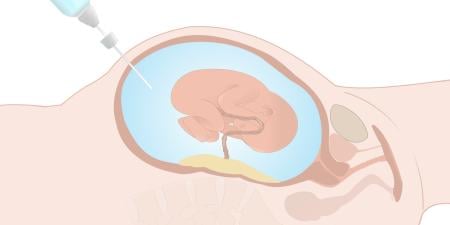Case
Mr. Lawrence, a 50-year-old man with diabetes, is on dialysis for chronic renal failure and on the waiting list for a kidney transplant. Because he is in relatively good health, he is low on the list. His physicians advise him that he could be on the list for up to 3 years and that his health during that time would not be jeopardized, aside from the risks and inconveniences associated with long-term dialysis. Mr. Lawrence is divorced and on bad terms with his ex-wife; he has no children and has contacted his sister and her family to see if any of them could be a living donor. His sister is obese, at risk for diabetes, and is not a suitable donor candidate; no other family members or friends are willing to consider donating a kidney to Mr. Lawrence.
Unable to find a living donor and dismayed at the thought of remaining on dialysis for years, Mr. Lawrence decided to use his financial resources to purchase a kidney and undergo a transplant in China. He spent 2 months in China after the surgery, where he was cared for by a local transplant team that provided postoperative care, including monitoring his renal function and managing his immunosuppressant medications. The surgery occurred without any significant complications, and Mr. Lawrence's recovery was excellent.
A month after his return to the United States, Mr. Lawrence ran out of the medications that his doctors in China had prescribed, including his immunosuppressants. He knew that failing to take the medication could cause graft rejection, so he made an appointment with Dr. Roberts, a nephrologist at a local academic center who specialized in care of renal transplant patients. Dr. Roberts was aware that many of the organs secured in China came from executed prisoners who did not always consent to organ donation. Further, Dr. Roberts was wary because purchasing organs was illegal in the U.S. Having worked in the transplant field for several decades and witnessed numerous changes in the regulations about and care of transplant patients, Dr. Roberts understood how difficult it was to secure an organ, but didn't want to be perceived as condoning Mr. Lawrence's actions.
Commentary 2
There is professional consensus that the recipient of an illegally obtained organ is medically disadvantaged for several reasons—increased morbidity due to a greater risk of infection, lack of indicated medications, and greater frequency of postoperative complications [1]. The American Society of Transplantation (AST) declared in its "Position Statement on Transplant Tourism" that it "strongly supports the provision of optimal medical care to all transplant recipients, including those who receive a transplant abroad whether from a living or deceased donor, kidney or other organ" [2]. I have no doubt that this is the standard accepted by the transplant community because patient welfare, which includes trying to avoid the need for retransplantation, is the primary concern of all transplant physicians.
In keeping with the spirit of the AST position statement, I do not believe that Dr. Roberts faces any legal or ethical constraints in providing care to Mr. Lawrence. Presumably Mr. Lawrence has the same insurance benefits he did before his transplant, which makes the financial aspect of his long-term care less burdensome. Although Dr. Roberts might disapprove of Mr. Lawrence's traveling abroad and participating in "transplant tourism," he certainly knows that the wait for a kidney by an adult with diabetes can be very long and that the morbidity and mortality of dialysis patients are significant. I think it is realistic to assume that anyone facing this reality who had the means to procure an organ abroad would at least consider it. No matter how Mr. Lawrence went about obtaining his new kidney, his postoperative care now takes priority over any other concerns, and Dr. Roberts is in no way condoning his patient's actions by treating him.
The most tragic aspect of this case is that the U.S. shortage of organ donors is so dire [3]. Our current organ donation system is based on a model of altruistic donation. Unfortunately the difference between the number of organs needed and the number donated continues to grow wider despite increased efforts to promote both cadaveric and living organ donation by government agencies, transplant and nephrology organizations, patient organizations, and others. It is projected that by 2010, the UNOS kidney waiting list will have 100,000 patients and that the average wait time will be nearly 10 years [4]. The transplant community has responded to the shortage by developing strategies to expand the number of available organs by, for example, accepting donations after cardiac death and from live donors and by using extended criteria donors—that is, allowing patients between the ages of 50-59 with two or more specific conditions that would have previously excluded them (cerebrovascular death, serum creatinine levels greater than 1.5 mg/dL, and a history of hypertension) to be donors [5]. Moreover, governmental agencies have initiated first-person consent programs so that family members need not be consulted about a person's interest in organ donation [6].
Taking a different approach, others have advocated a regulated system of financial incentives for living kidney donors. Arthur Matas has proposed a model using the infrastructure already in place for deceased donor evaluation and allocation [7]. He suggests providing living donors with long-term health care and posttransplantation follow-up. Before this can happen, UNOS and Congress would have to agree on legislation to relax the current restrictions that prohibit financial compensation for the donation of an organ [8]. A widely held concern about any compensation system is that it would exploit the poor and members of minority communities who would be disproportionately tempted to donate. I have been told by Francis L. Demonico, MD, that The Transplantation Society has been crafting a statement against organ trafficking, commerce in organs, and the exploitation of the poor. Michelle Goodwin [9], however, writes persuasively that these predictions are not necessarily going to come true, and she argues that, in fact, the communities that The Transplantation Society is trying to protect would benefit from the increased availability of both compensated and altruistic donations.
Clearly those who do purchase organs abroad—despite the restrictions—and have successful transplants decrease the number of patients who are on the U.S. waiting list for organs and also, potentially, lower the cost of medical care in the U.S., since the patients who travel abroad pay their own expenses. Even though they may be at higher risk for some complications, treatment for these patients is not likely to be as costly as the actual surgery and associated hospital care. There have been proposals by both insurance companies and legislative bodies, for example in the West Virginia legislature, that encourage health care tourism and may lead to an increase in the practice [10], which contradicts the position of UNOS and federal legislation.
In conclusion, efforts are being made to increase the availability of organs in the United States so that it will be unnecessary to worry about the increased risks and uncertainties of going abroad or the exploitation of vulnerable people in the U.S. The current shortage of organs and the growing number of those on organ wait lists places pressure on the medical community to find ways to encourage both cadaveric and living donations. These pressures will undoubtedly change our current approach to organ donation and require the cooperation of medical communities, patient advocacy groups, government agencies, legislatures, and insurance companies.
References
- Canales MT, Kasiske BL, Rosenberg ME. Transplant tourism: outcomes of United States residents who undergo kidney transplantation overseas. Transplantation. 2006;82(12):1658-1661.
-
American Society of Transplantation. Position Statement on Transplant Tourism. Mt Laurel, NJ: American Society of Transplantation; 2007. http://www.a-s-t.org/files/pdf/public_policy/key_position/Position_Statement_Transplant_Tourism.pdf. Accessed April 9, 2008.
-
United Network for Organ Sharing. US transplantation data. http://unos.org/data/default.asp?displayType=usData. Accessed April 9, 2008.
- Xue JL, Ma JZ, Louis TA, Collins AJ. Forecast of the number of patients with end-stage renal disease in the United States to the year 2010. J Am Soc Nephrol. 2001;12(12):2753-2758.
- Pomfret EA, Sung RS, Allan J, Kinkhabwala M, Melancon JK, Roberts JP. Solving the organ shortage crisis: the 7th Annual American Society of Transplant Surgeons' State-of-the-Art Winter Symposium. Am J Transplant. 2008;8(4):745-752.
-
Illinois Secretary of State. Life Goes On—New Organ/Tissue Donor Registry. https://www.ilsos.gov/organdonorregister/. Accessed March 4, 2008.
-
Matas AJ. Design of a regulated system of compensation for living kidney donors. Clin Transplant. February 13, 2008 (epub ahead of print).
-
National Organ Transplantation Act. Organ procurement organizations, sec 273. http://www.optn.org/sharedcontentdocuments/nota_as_amended_-_jan_2008.pdf. Accessed April 9, 2008.
-
Goodwin M. Black Markets: The Supply and Demand of Body Parts. New York, NY: Cambridge University Press; 2006.
- Bramstedt KA, Xu J. Checklist: passport, plane ticket, organ transplant. Am J Transplant. 2007;7(17):1698-1701.



